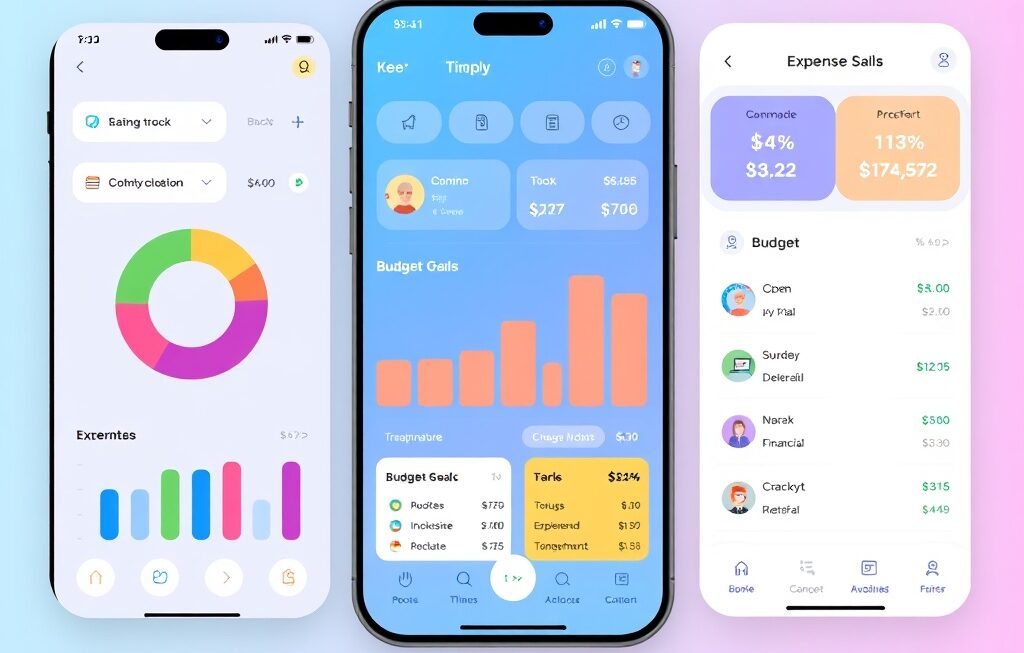How to Create a Healthier Relationship with Money
Financial well-being is not just about how much money you earn — it’s about how you think about, manage, and relate to money. Your money mindset shapes your decisions, habits, and ultimately your financial success. A healthy financial mindset can reduce stress, increase confidence, and allow you to build wealth sustainably over time.
In 2025, understanding the psychology behind your money behaviors is more critical than ever. Rapid technological changes, digital banking, and evolving economic landscapes require not only practical financial skills but also emotional intelligence and self-awareness regarding money.
This article explores the intersection of money mindset and financial well-being, offering actionable strategies to improve both and create a balanced, healthy approach to your finances.
What Is Money Mindset?
Your money mindset is the set of beliefs, attitudes, and perceptions you hold about money. It influences how you earn, spend, save, invest, and even talk about money.
People with a positive money mindset:
- View money as a tool, not a source of stress.
- Focus on long-term goals rather than immediate gratification.
- Approach financial challenges with problem-solving rather than fear.
Conversely, a negative money mindset can manifest as:
- Chronic worry or anxiety about finances.
- Impulsive spending habits.
- Avoidance of budgeting, investing, or financial planning.
Understanding your mindset is the first step toward improving your financial well-being.
The Link Between Money Mindset and Financial Well-Being
Financial well-being encompasses more than just the numbers in your bank account. It involves:
- Feeling secure in your financial situation.
- Having control over your spending and saving.
- Being prepared for emergencies and unexpected expenses.
- Experiencing less financial stress in daily life.
Research shows that mindset directly impacts these factors. For instance, people with a growth-oriented money mindset tend to save more, invest consistently, and recover faster from financial setbacks. In contrast, scarcity or fear-driven mindsets often lead to avoidance behaviors, debt accumulation, and stress.
Common Money Mindset Blocks
Several psychological barriers can prevent people from achieving financial well-being:
1. Scarcity Mentality
Believing that money is always limited can lead to hoarding, fear-based decisions, or missed opportunities for growth.
2. Fear of Spending
Over-analyzing every purchase or avoiding spending entirely can create stress and limit life satisfaction.
3. Guilt Around Wealth
Some individuals feel uncomfortable earning or having money, which may lead to self-sabotage in finances.
4. Impulse-Driven Decisions
Emotional spending or chasing “get-rich-quick” schemes often results from a lack of financial discipline or clarity.
5. Comparison with Others
Constantly measuring your finances against peers can foster jealousy, insecurity, or poor financial choices.
Developing a Positive Money Mindset
Shifting your money mindset requires intentional effort, self-reflection, and practical strategies.
1. Reflect on Your Financial Beliefs
Identify the messages you received about money growing up. Are they empowering or limiting? Understanding your beliefs helps reframe negative patterns.
2. Set Clear Financial Goals
Having defined goals creates purpose and reduces stress. Whether it’s saving for a house, investing for retirement, or building an emergency fund, clarity helps you focus your decisions.
3. Practice Gratitude and Abundance Thinking
Focus on what you have rather than what you lack. This mindset encourages better financial habits and reduces scarcity-driven anxiety.
4. Educate Yourself
Knowledge is power. Learning about budgeting, investing, and financial planning increases confidence and reduces fear-based decisions.
5. Use Visualization Techniques
Visualize your financial goals and the steps to reach them. This reinforces commitment and aligns your mindset with tangible outcomes.
Practical Steps to Enhance Financial Well-Being
Developing a positive money mindset is one part of the equation. Taking concrete actions ensures your mindset translates into financial health.
1. Create a Budget
A structured budget gives control over your spending, helping align your actions with your goals.
2. Build an Emergency Fund
Having a safety net reduces financial stress and allows for more confident decision-making.
3. Reduce High-Interest Debt
Paying down debt improves both financial stability and emotional peace.
4. Automate Savings and Investments
Automation prevents impulsive decisions and reinforces consistent financial habits.
5. Track Progress and Celebrate Wins
Regularly reviewing finances and acknowledging achievements builds confidence and motivation.
The Role of Mindfulness in Financial Decisions
Mindfulness — being fully aware of your thoughts, feelings, and actions — can significantly improve financial decision-making.
By practicing mindfulness:
- You notice emotional triggers before making impulsive purchases.
- You make intentional choices aligned with long-term goals.
- You reduce anxiety around money by focusing on what you can control.
Simple practices like journaling spending habits or reflecting on financial decisions at the end of each week can strengthen your money mindfulness.
The Impact of Financial Well-Being on Life Quality
Financial well-being is deeply connected to overall life satisfaction. Individuals with healthy financial habits and positive money mindsets report:
- Lower stress levels.
- Better mental and physical health.
- More opportunities to pursue personal and professional goals.
- Increased confidence in planning for the future.
In essence, improving your money mindset is an investment not just in your finances but in your overall quality of life.
Tools and Resources to Support Money Mindset and Financial Well-Being
Leveraging technology can reinforce positive financial habits:
- Budgeting Apps: Mint, YNAB, PocketGuard.
- Financial Journals: Personal finance planners for reflection and goal tracking.
- Automated Investment Platforms: Betterment, Wealthfront, Q.ai.
- Educational Resources: Podcasts, online courses, and books about behavioral finance and money psychology.
These tools can help integrate practical financial management with mindset improvement.
Long-Term Strategies for Sustainable Financial Health
Achieving lasting financial well-being requires combining mindset, habits, and strategic planning:
- Consistency: Regular saving, investing, and budgeting are more powerful than sporadic efforts.
- Continuous Learning: Stay informed about new financial tools, investment strategies, and economic trends.
- Self-Reflection: Periodically review your beliefs, goals, and progress to identify areas for improvement.
- Balance: Align spending, saving, and investing with personal values to enjoy life while building wealth.
By maintaining these practices, financial freedom becomes not just a possibility but a sustainable reality.

In Summary
Money mindset and financial well-being are inseparable — your thoughts, beliefs, and emotions about money shape your financial decisions and outcomes. therefore By cultivating a positive money mindset, taking practical actions, and leveraging technology, you can reduce stress, make smarter choices, and build a stronger financial foundation.
In 2025, mastering your relationship with money is essential for both wealth and life satisfaction. The journey toward financial well-being begins with self-awareness, continues with disciplined habits, and flourishes when your mindset aligns with your goals.



